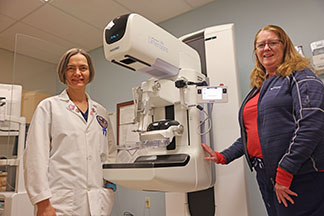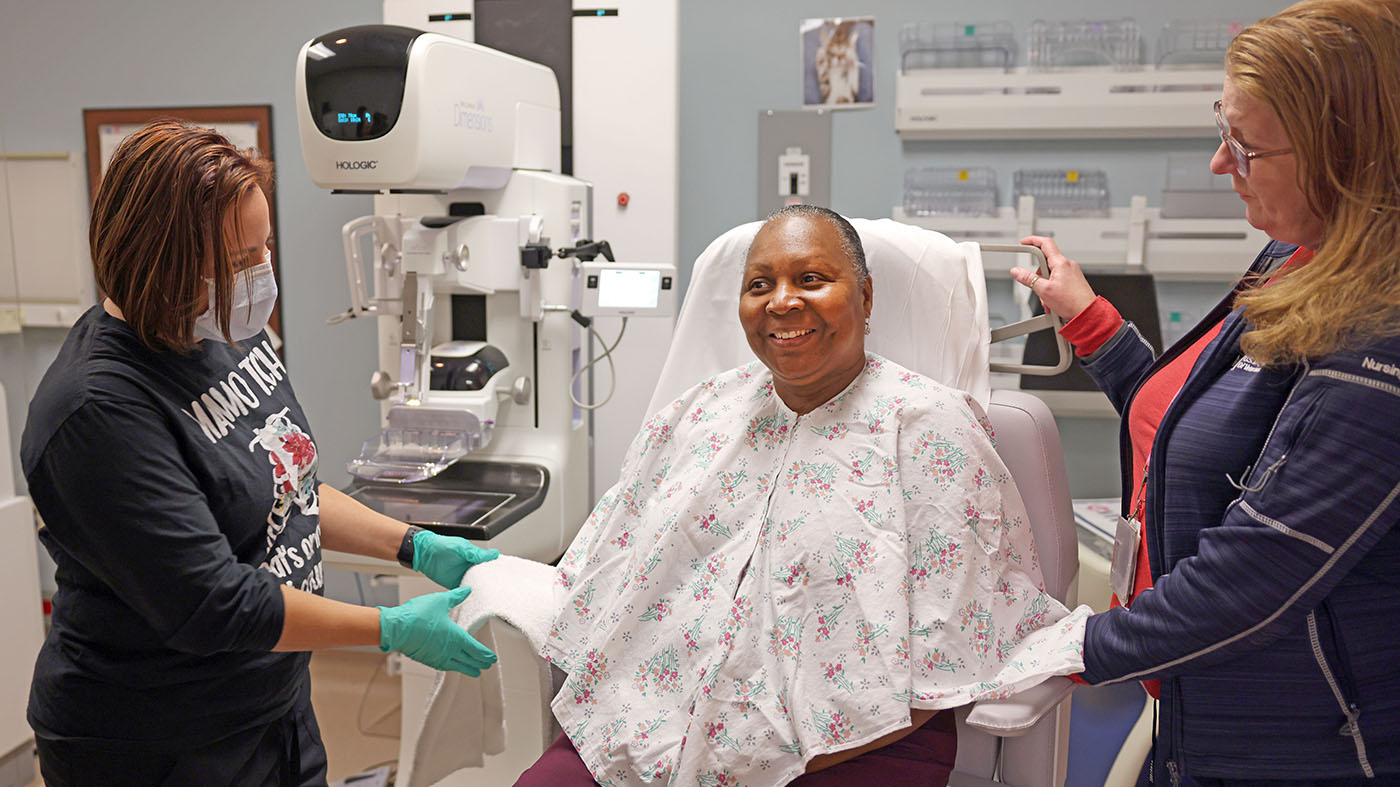Phoenix VA is a leader in its breast imaging program. Since 2014 Phoenix VA has gone through the American College of Radiation accreditation to become a Breast Imaging Center of Excellence.
“What that means is that every single mammography program out in the community has to be certified by the American College of Radiology to perform mammograms,” said Dr. Katherine Martin, radiologist and breast imaging service chief. “We have gone above and beyond that, becoming certified in breast ultrasound, ultrasound guided breast biopsies, stereotactic core needle biopsies, and breast MRI, which are three additional certifications beyond being certified in mammography.”
Phoenix VA conducts approximately 2,000 breast cancer examinations annually and it has detected 22 cancers through screenings between January and October of 2023. According to the Centers for Disease Control and Prevention, breast cancer is the second most common cancer among women in the United States, affecting one in eight women.
“The program benefits female Veterans as a whole, especially those in the screening age—40 and older—but we also see a significant number of male patients here, usually presenting with symptoms of gynecomastia, which is a benign condition,” said Martin.
Pictured above, mammography technician Amanda Shepherd and nurse navigator Candice Phelps consult Air Force Veteran Linda Braden before an examination at the Phoenix VA Amethyst Clinic.
The screening mammography program started at Phoenix in 2010 with only one certified breast imaging radiologist. At the time, Phoenix was conducting screening mammography, diagnostic mammography, breast ultrasounds, ultrasound guided breast biopsies and prone stereotactic core needle biopsies. Since then, the program has grown significantly, adding breast MRI and MRI guided biopsies.
The program that began with one digital mammography machine now has two newer 3D mammography machines and also offers stereotactic core needle biopsies in the 3D mammogram rooms; the latter allows the patient to sit upright during the procedure, making it a more comfortable experience. State of the art equipment allows the program to stay competitive with the private sector.
“It offers our patients a level of assurance that they’re getting really good quality care when they come here for their breast imaging,” Martin added.
“Making sure they know I am here for them is my number one priority.”
On the horizon for Phoenix VA are plans to offer contrast-enhanced mammography, which is a newer technique that takes mammogram-like pictures after IV radiographic contrast injection and looks for abnormal areas of uptake of that contrast within the breast.

“Images of the breast are unique to each woman. It’s very different than any other part of radiology. I like to say a normal brain looks like every other normal brain on a CT of the head, but a mammogram from one woman to the next varies tremendously in terms of density and breast pattern. So, it’s very important to know what the patient looked like in the past because one of the things we do to detect breast cancer is to look at subtle changes in the way that the mammogram pictures look,” said Martin.
Candice Phelps, a breast imaging nurse navigator, has been with Phoenix VA for eight years and says it’s important that patients get their concerns addressed and receive follow-up care in a timely manner after a breast cancer diagnosis.
“Making sure our Veterans know someone cares and is available to them during what could be a very difficult time is what I love most about this position. Navigating them through this very large facility and making sure they know I am here for them is my number one priority,” said Phelps.
The female Veteran population is growing at a much faster rate than the male Veteran population, and many Veterans are of screening age. It’s beneficial for Veterans to be able to receive complete care here in Phoenix. “It’s nice for Veterans to have a center where they can get their care and they don’t have to worry about going to a different place every year,” Phelps added.
Another unique and convenient feature of the program is its co-location with gynecology, making the process of patient care and scheduling much more expedient. If a patient is coming in for their well-woman exam, they may also try to schedule their mammogram on the same day to receive all care in the same clinic.
Air Force Veteran Linda Braden, a patient since 2017, chooses VA over the private sector and can attest to the convenience and quality of care she receives during her visits.
“I come here because I love the service. We’ve served our country and our fellow citizens and we deserve a break and good care,” Braden said.
For more information on mammograms and breast health, visit Mammogram/Breast Health – Women Veterans Health Care (va.gov).
Topics in this story
More Stories
Bob Jesse Award celebrates the achievements of a VA employee and a team or department that exemplifies innovative practices within VA.
The Medical Foster Home program offers Veterans an alternative to nursing homes.
Watch the Under Secretary for Health and a panel of experts discuss VA Health Connect tele-emergency care.






